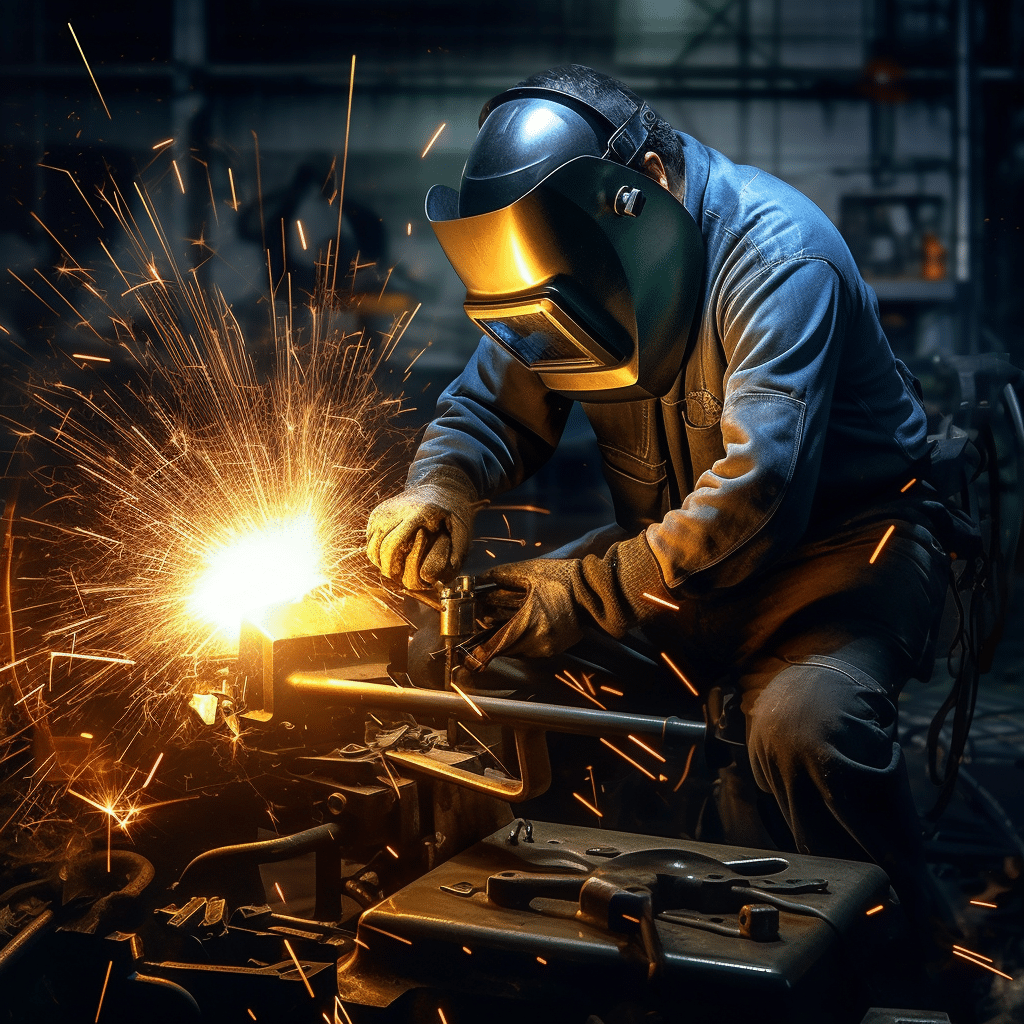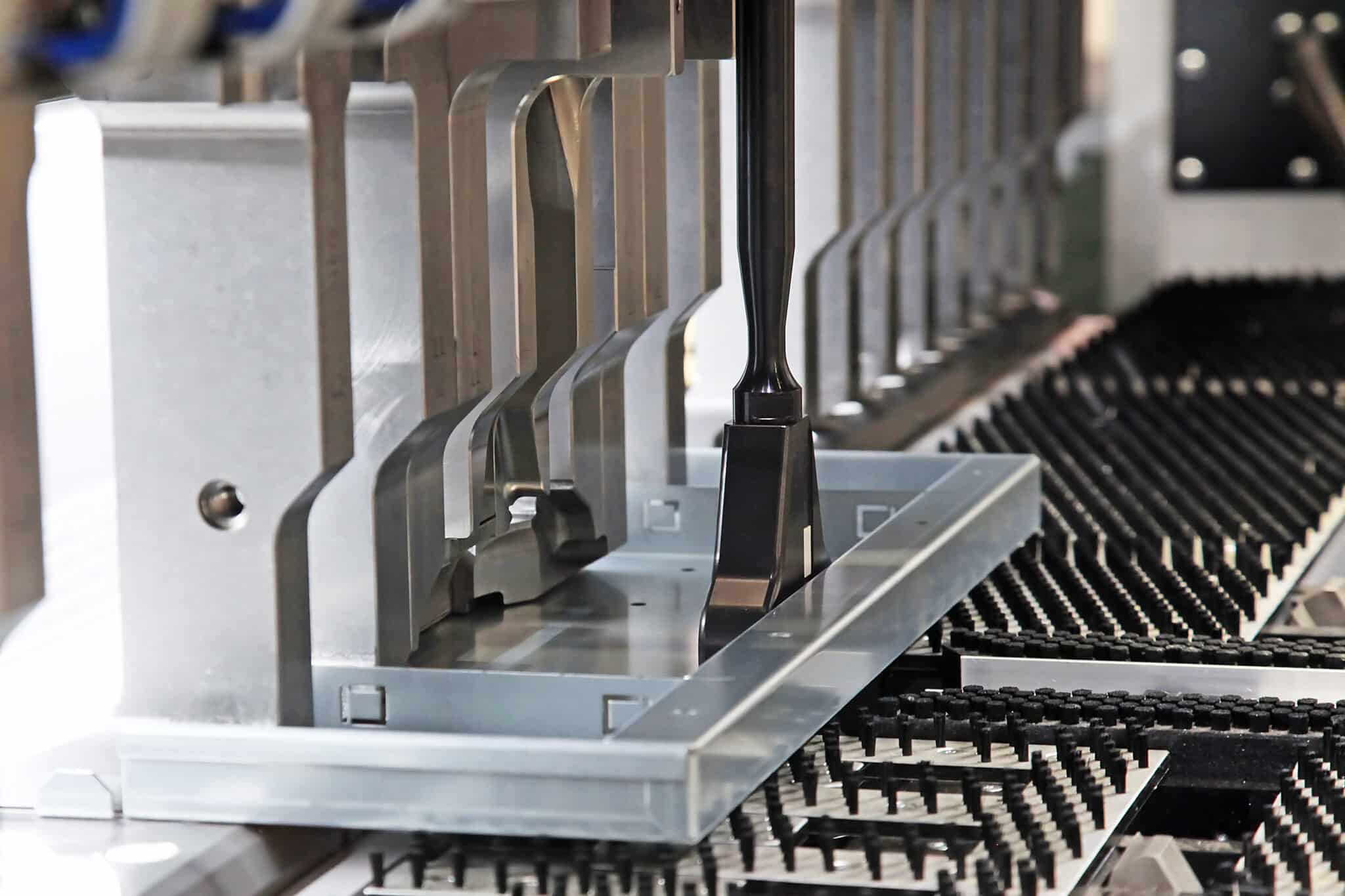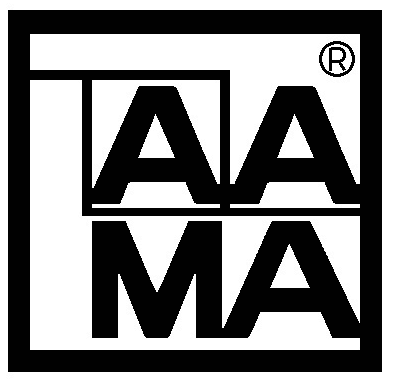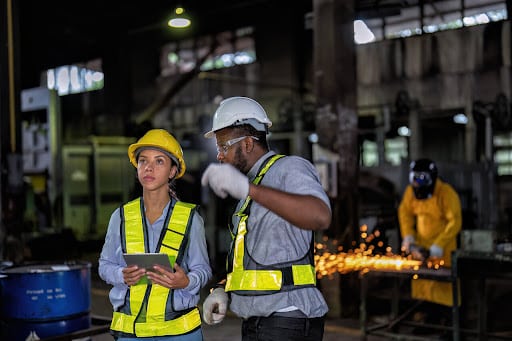Industrial welding is a specialized job that demands technical skills, advanced welding training, and years of experience to perform efficiently and safely. By hiring our professional industrial welders, you can trust your project to a skilled workforce capable of executing advanced welding processes using high-temperature flame, while adhering to safety standards and building codes.
Entrusting your project to professionals like Alpha Contract Manufacturing Group, you can be rest assured that the work will be completed on time and to specifications, allowing you to focus on your core business while knowing that your welding project is in good hands



Faced with new requirements in the market and the high level of competition in the manufacturing sector, more and more Philadelphiamanufacturing firms are turning to subcontracting in order to lower their production costs, increase their performance or meet greater demand. In this context, the first challenge is generally related to the choice of one’s new partners. And it’s not an easy task to identify subcontractors who actually meet all your particular expectations. The best option is to turn to a cluster of firms specialized in industrial subcontracting.
We apply these values when it comes time to choose our partners and begin each of our projects to ensure that every client also benefits. Whatever your special welding needs are, Alpha will do everything to guarantee your satisfaction.
There are several different types of industrial welding techniques that are commonly used in industrial settings, each with its own unique set of characteristics and best suited for specific applications.
Some of the most commonly requested types of industrial welding in Philadelphia include:
Also known as tungsten inert gas (TIG) welding, this type of welding uses a non-consumable tungsten electrode to produce precise and high-quality welds. It is a popular welding process that is suitable for welding a wide range of materials, including aluminum, stainless steel, and nickel alloys.
This type of welding (also know as stick welding) uses an electric arc to produce the weld and a consumable electrode coated in flux to shield it from contaminants. It is a simple and inexpensive method that is suitable for welding a wide range of materials, including mild steel, low alloy steel, and cast iron.
The FCAW process is similar to SMAW, but it uses a continuously-fed consumable electrode to shield the weld from contaminants. It’s a faster and more efficient method than the SMAW method and is often used for welding thicker materials.
Also known as metal inert gas (MIG) welding, uses an electric arc to produce the weld and a continuous wire feed to supply the filler material. It is a fast and versatile method that is suitable for welding a wide range of materials with gas welding processes.
The submerged arc welding is a method that uses an electric arc to produce the weld while the weld and the surrounding area are covered with granular flux. It is a highly efficient method that is suitable for welding thick materials.
This process uses an electric arc welding to produce the weld. It can be used with a variety of filler materials and is suitable for welding a wide range of materials.
Is a method that uses electrical resistance to generate heat to produce the weld. It is a fast and efficient method that is suitable for welding thin materials.
This technique uses a focused laser beam to produce the weld. This welding technology is a precise and high-quality method that is suitable for welding thin materials and intricate components.
We guide Philadelphia companies in choosing the right method for your specific needs, leveraging our experienced welding inspectors and welding positioners to ensure an efficient welding process.


Another important factor in industrial welding is the material being welded. Steel and stainless steel are among the most commonly welded materials, but there are many other options as well. The choice of material will depend on the strength and corrosion resistance required for the finished product.


Steel is a strong, durable metal that is widely used in a variety of applications, including construction, manufacturing, and transportation. It is easy to weld and can be used with various welding techniques and processes. Stainless steel is also a popular choice for industrial welding due to its corrosion resistance and durability.
They are versatile materials that are both widely used in industrial welding and are known for their strength and durability.
We adhere to rigorous safety measures to ensure the well-being of our workforce. This includes regular routine maintenance checks and training for our staff, which contributes to the smooth operation of our facilities. We are proud to offer reliable industrial welding subcontracting in Philadelphia !
Industrial welding is a process that employs heat, pressure, and sometimes a filler material to join metal components or structures. It involves the use of specialized welding equipment and is carried out by professional, experienced welders, forming the backbone of many industries.
Several types of welding are employed in industries, depending on the materials used and the specific applications. These include Gas Tungsten Arc Welding (GTAW), Shielded Metal Arc Welding (SMAW), Flux Cored Arc Welding (FCAW), and Gas Metal Arc Welding (GMAW).
Industrial welding is performed by trained and experienced welding professionals using specialized welding technology and equipment. The process involves heating and fusing pieces of metal together, often using a filler material.
Shielded Metal Arc Welding (SMAW), also known as stick welding, is one of the most in-demand welding methods due to its versatility and the low cost of equipment. Additionally, Gas Tungsten Arc Welding (GTAW), known as TIG welding, is also highly sought after for its precision and clean welds.
The four popular types of welding are Shielded Metal Arc Welding (SMAW), Gas Tungsten Arc Welding (GTAW), Gas Metal Arc Welding (GMAW), and Flux Cored Arc Welding (FCAW). These methods are widely used by welding professionals in various industries.
The strongest weld is generally considered to be the Gas Tungsten Arc Welding (GTAW) or TIG weld, especially when welding non-ferrous metals like Copper Alloy or stainless steel. This form of welding provides high-quality, clean welds with less spatter.
Aluminum is a lightweight metal that is commonly used in the construction of airplanes, boats, and automobiles. It is known for its corrosion resistance and is relatively easy to weld.
These metals are often used in the construction of plumbing, electrical, and refrigeration systems. They are known for their conductivity and are relatively easy to weld.
Cast iron is a strong, brittle metal that is commonly used in the construction of heavy machinery and equipment. It can be challenging to weld due to its high carbon content and tendency to crack.
Nickel alloys are a group of metals that are known for their corrosion resistance and high-temperature strength. They are commonly used in the aerospace, chemical processing, and oil and gas industries.
Gas Tungsten Arc Welding (GTAW), or TIG welding, is often considered the hardest welding method to learn due to the high level of skill and control required. However, with our industrial welding courses and dedicated training, welding professionals can master this technique.
The construction industry hires the most welders, as welding is a key process in building structures and facilities. The manufacturing and automotive industries also hire a significant number of welders.
Professional welders use a variety of tools and equipment, from basic welders and gas welders to advanced welding positioners and automated welding processes. The selection of tools depends on the welding methods used and the specifics of the job.
Being an experienced welder requires advanced training, technical skills, and a dedication to the craft. We offer a career path in industrial welding that includes training programs like those offered by the American Welding Society (AWS).
The best welder for structural steel is often a Shielded Metal Arc Welding (SMAW) machine, due to its efficiency and strength in welding thick pieces of metal. This, along with the welder’s experience and technical skills, can ensure the quality and strength of the weld.
Remember, the best decisions in welding processes are made with the help of educated welders. At ICMG, we offer complete full-service welding to empower professionals.